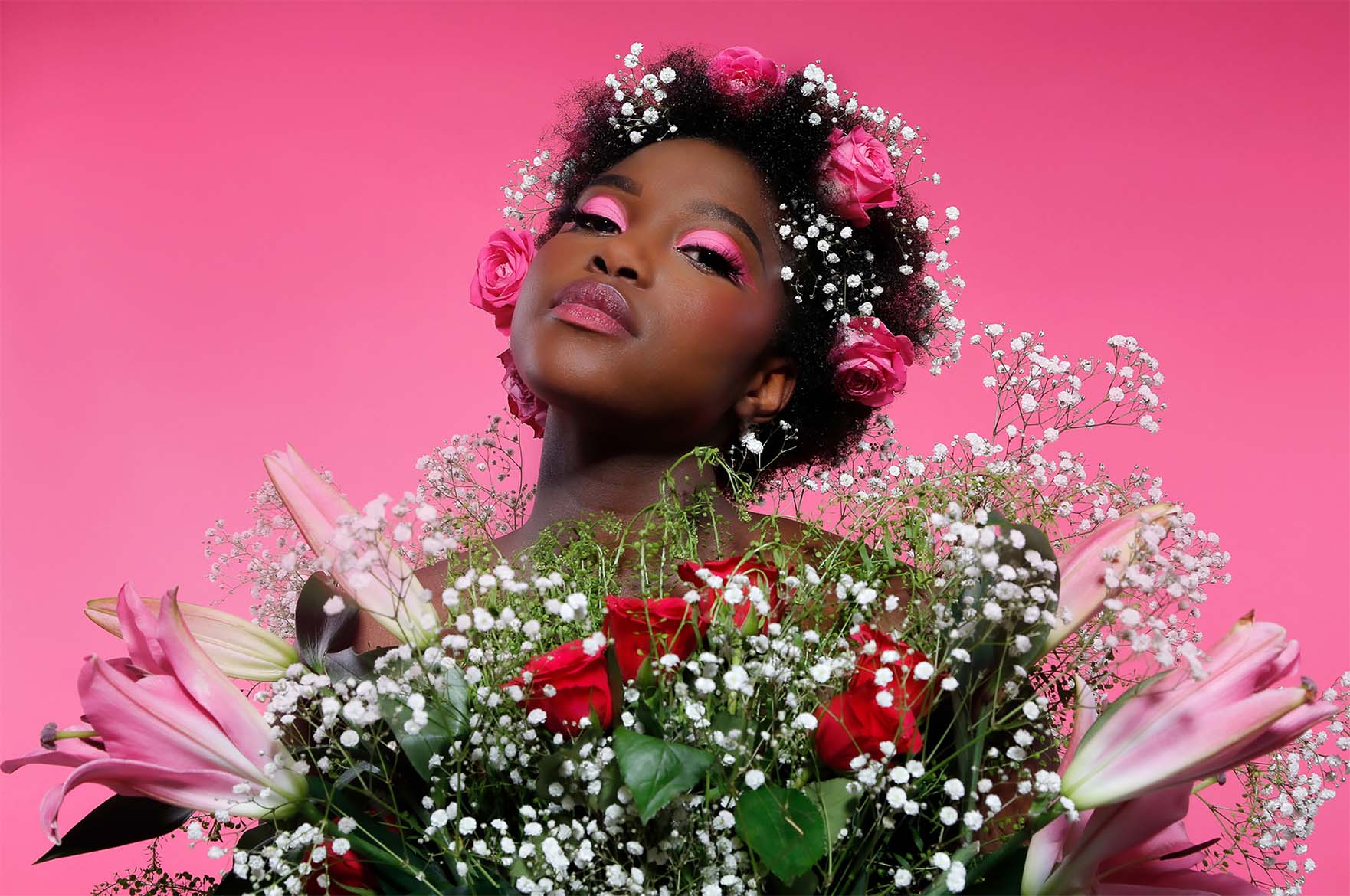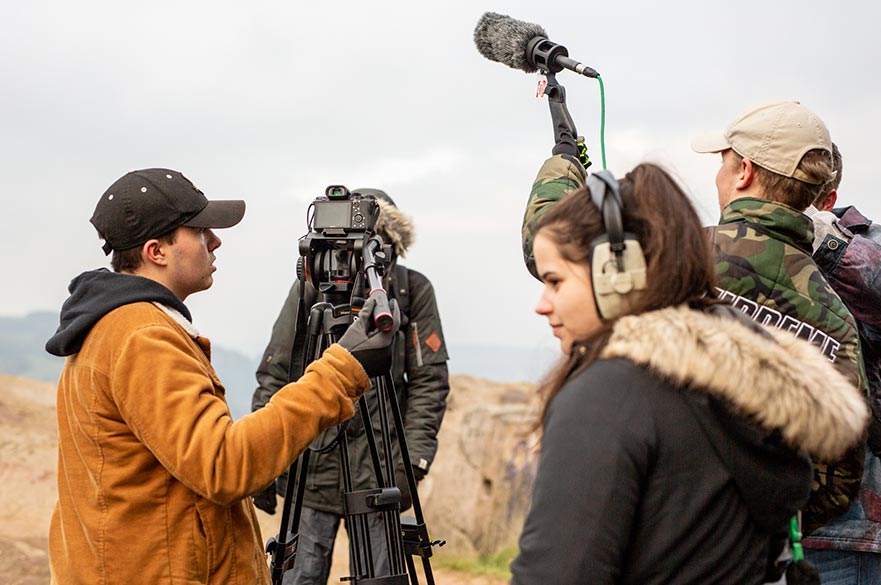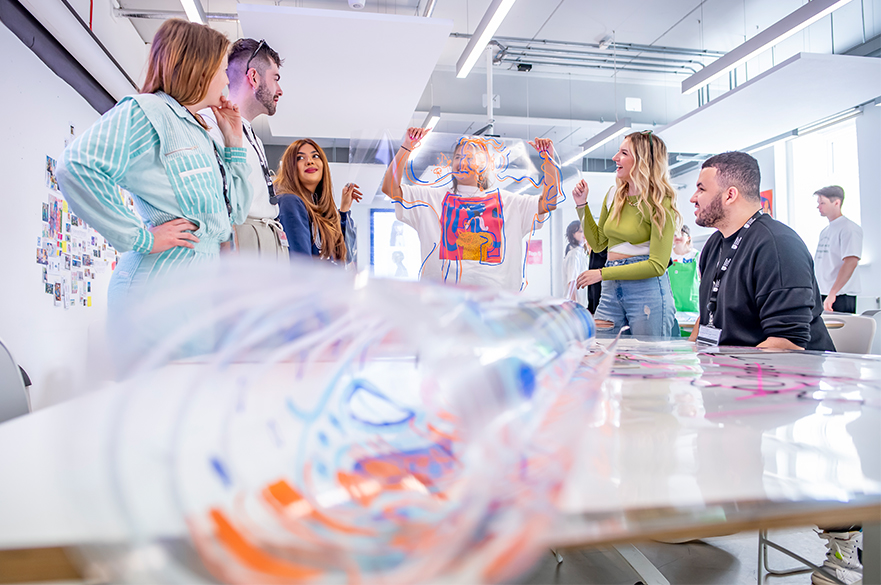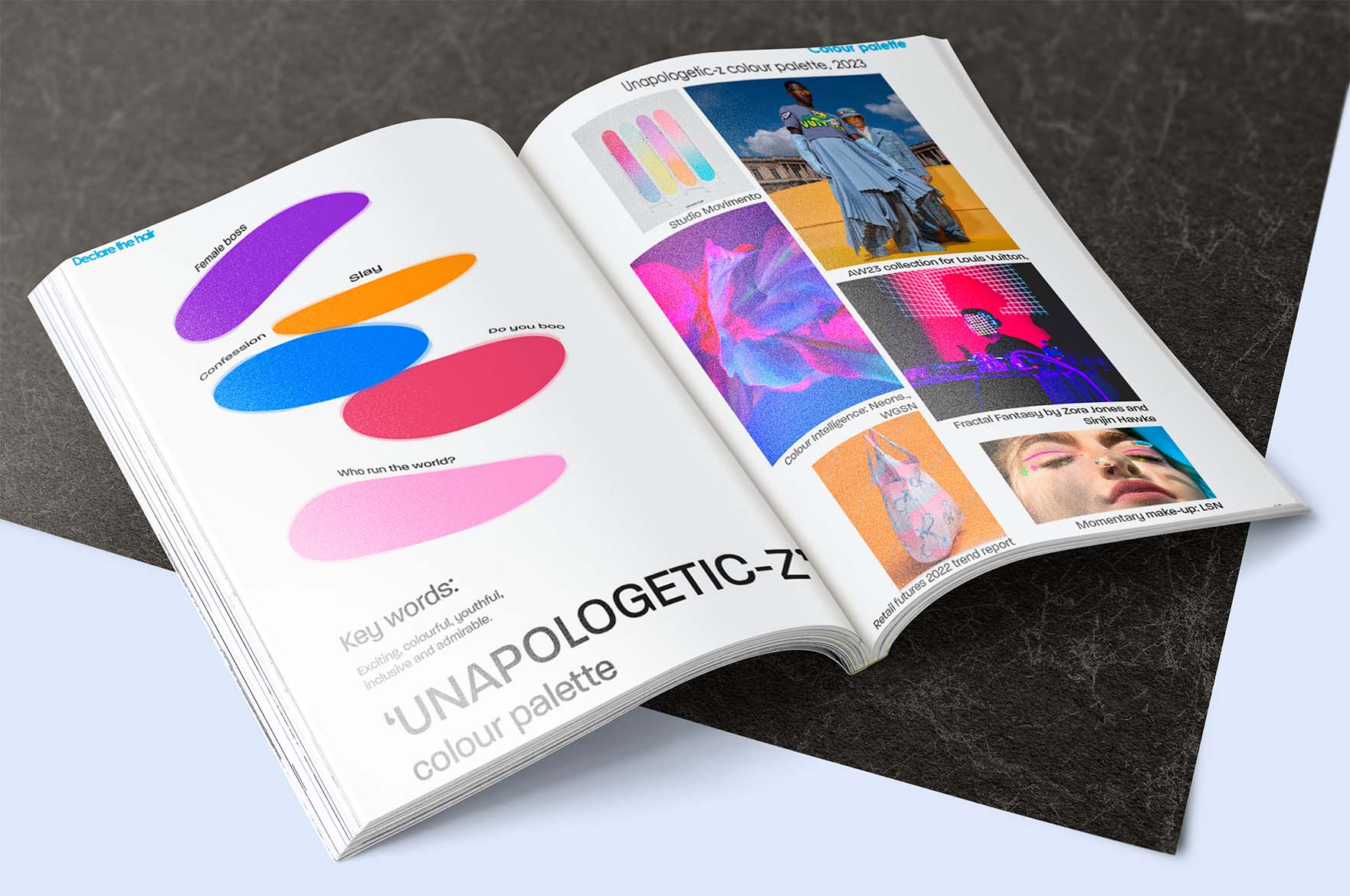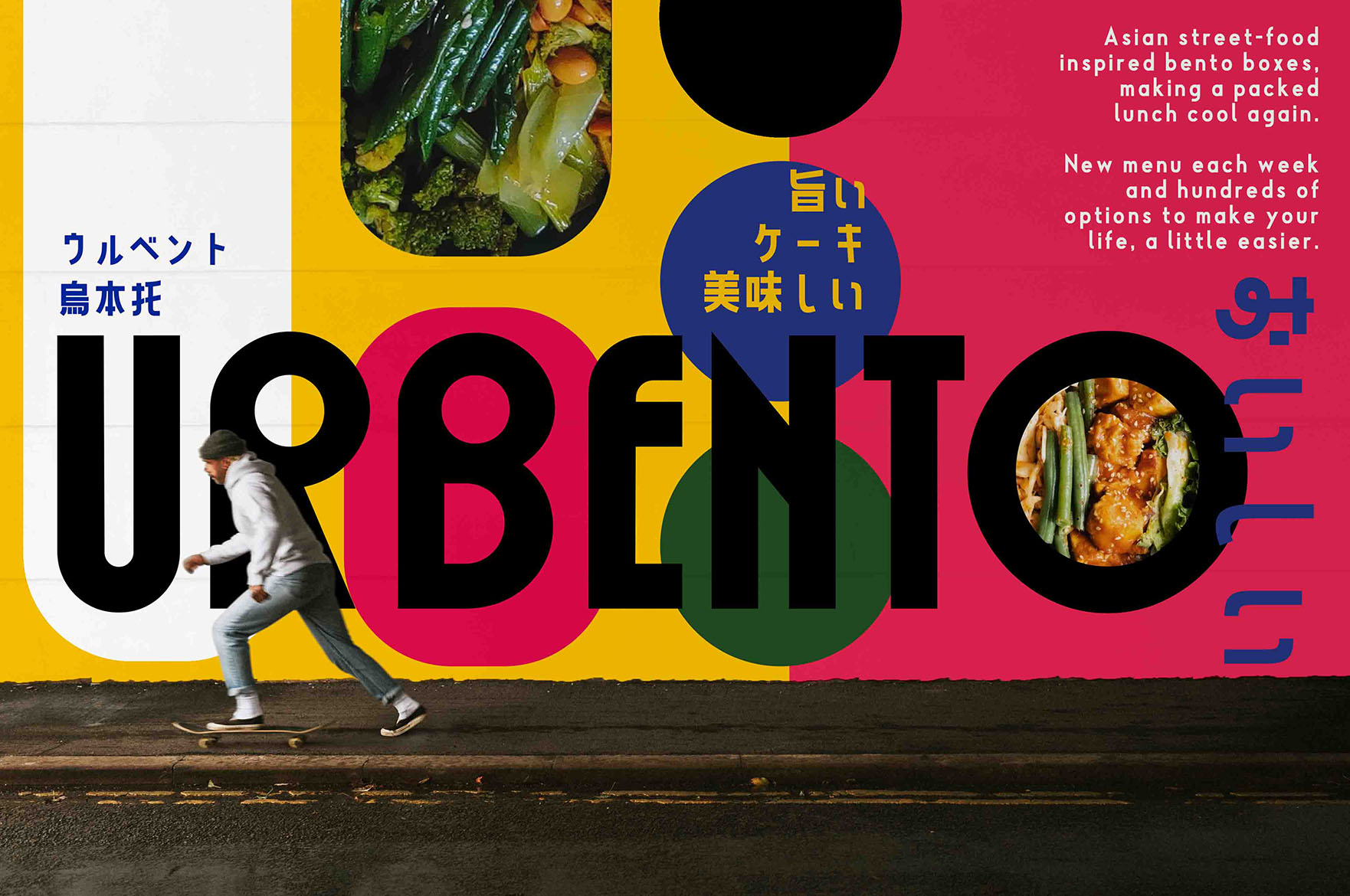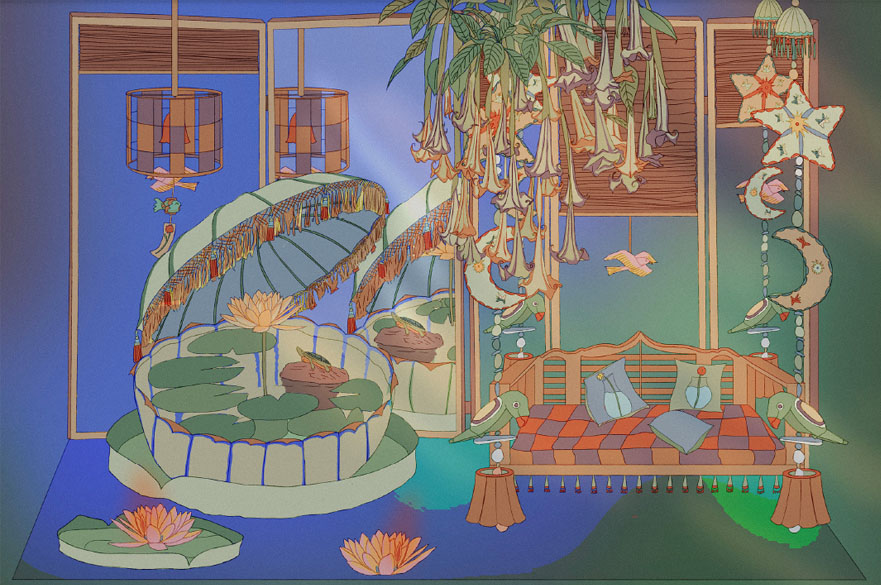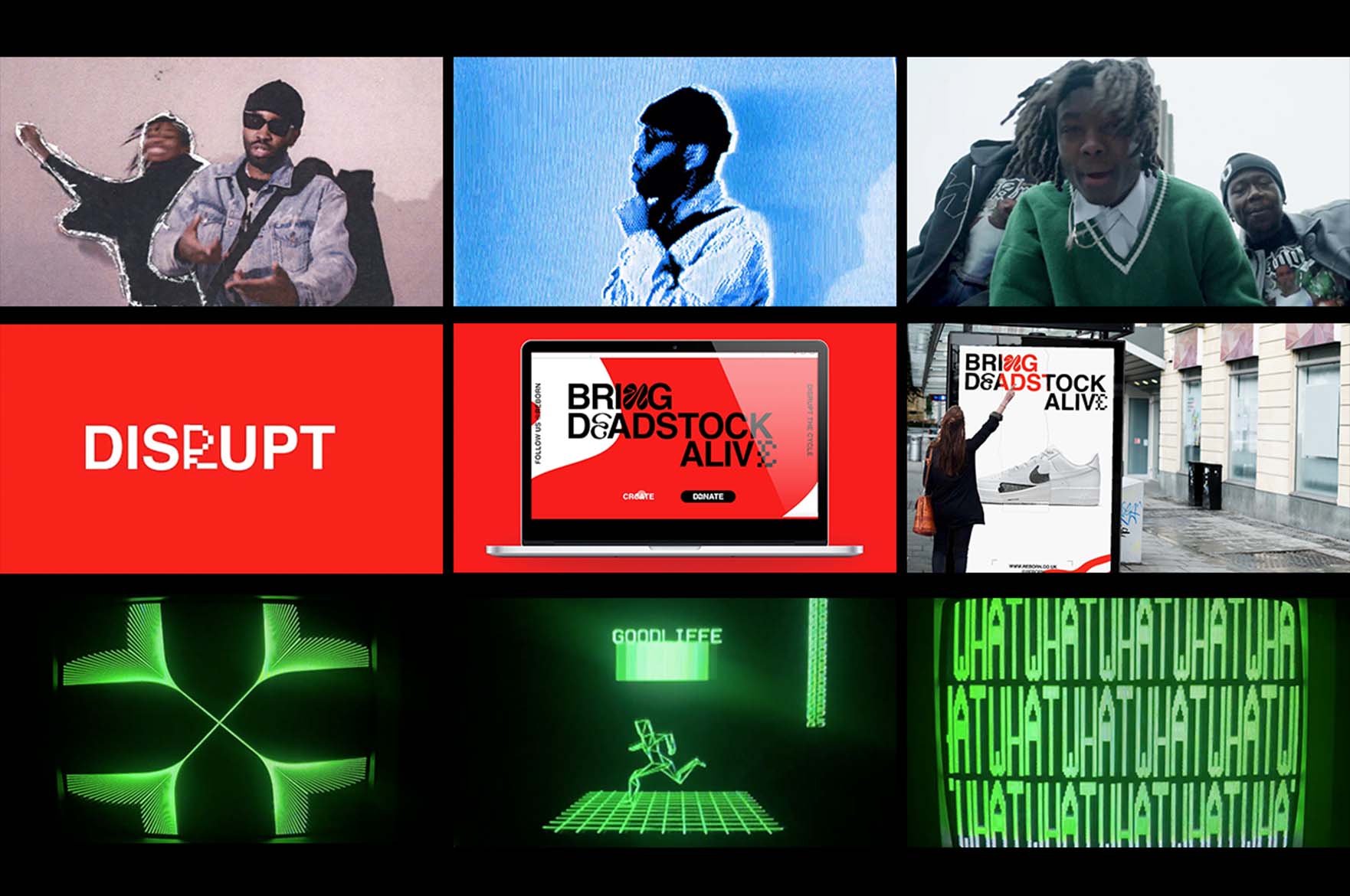This course is in Clearing
Offers from 80 tariff points
About this course
Fashion Photography is evolving. Fashion images are no longer viewed passively and the line between image capture and image creation are blurring. Your role as tomorrows Fashion Photographer is to imagine both new possibilities for the creator, and new experiences for the viewer. Then bring them to life.
Using both traditional and cutting-edge, immersive approaches to picture-making, this course provides you with critical, ethical and professional tools to express your identity and create new and better visions of the world. Through live and simulated assignments, you’ll be collaborating with dancers, film-makers, musicians, games designers and more. You’ll be learning from an award winning academic team who’s client lists include amongst others Vogue, i-D, Rolling Stone, GQ, Paul Smith, Levis and Swiss Army. Working together you will be creating, pitching and submitting work direct to Publishers, Art Directors, Art-Buyers and Designers, as well as entering International Competitions.
During the three years you will experience every moment of the creative process, from inspiration to concept development. From pitch to production. You will learn how to control light in-camera, in the studio, on location and in post-production. You’ll capture beautiful images and create seductive experiences. You’ll work in stills, in film, in-game, online and more, you’ll help define how we’ll experience the future of Fashion Photography.
15
What you’ll study
Using both traditional and cutting-edge, immersive approaches to picture-making, live and simulated, this course provides you with the professional expertise to express your identity and vision of the world through fashion photography.
There is an opportunity for students to undertake a placement year, and transfer to the Sandwich route - please see further details in the Modules section.
Fashion Behind the Lens
This module provides the technical foundation to the course, providing students with the knowledge and skills to use a wide range of traditional image-capture technologies and techniques, both film-based and digital. Students will be encouraged to access and experiment with the course’s extensive inventory of professional-grade equipment. Alongside developing technical know-how, the module also builds on issues encountered in the “History, Contexts and Near Future of Photography” module, encouraging students to focus their thinking through a fashion-specific lens.
Fashion Beyond the Lens
This module builds on the foundational “Behind the lens” module, encouraging students to experiment with moving image, immersive technologies, AI and sound. Alongside exploring the latest and emergent digital capture technologies, students will continue to develop their understanding of the key issues pertinent to fashion and lifestyle contexts. Fashion-specific case-studies are again used to contextualise key themes examined in the accompanying lecture series, with students tasked to respond creatively through a bi-weekly work cycle. The emphasis is on experimentation and innovation, with students working toward the creation of new experiences and possibilities for Fashion Photography.
History, Context and Near-Future of Photography
This module begins students on a journey they will undertake as photographer, subject and audience, through Photography’s ever-expanding world.
It encourages you to explore the photographic world through global, historical, technological, ethical and theoretical perspectives, providing a foundational toolkit for conceptualising and contextualising their practice.
You will understand the huge cultural influence that photography has in society as the module challenges you to rethink what you know about the subject.
Through a combination of interactive-lectures and research-driven, presentational tasks, the module challenges students to rethink what they know about the subject and develop a vocabulary that will further your visual literacy and professional integrity.
CoLab: Research, Exploration and Risk-Taking
Through active participation with team-based problem-solving, you will work together in mixed teams on a project where you will use your creative ideas to generate solutions to the challenge or brief. Your project will allow you to explore how creativity can make an impact in society, as you choose a theme of sustainability, social justice, enterprise and innovation or community. This collaborative learning experience will expose you to a range of new processes and approaches that will develop your creative thinking.
Fashion Assignments
This module offers students the opportunity to further develop and apply the thematic and practical tools accrued in the first year, through a series of live fashion assignments. The emphasis is on moving creatively from interpreting a client brief, to ideas, to realisation, enabling students to interrogate their own creative process while ensuring that the client’s intent is clearly and compellingly communicated. The bi-weekly production cycle is maintained, with students directed to foster creative and collaborative approaches to problem solving through a series of briefs representing different career strands and outputs.
Fashion Lab
This module offers students an open and creative platform to further develop their ideas and more freely pursue their aesthetic vision from the end of Level 4. Students will be encouraged to reflect on their own personal skills and passions as part of their creative investigations, without commercial expectation of a fully resolved outcome. The module functions as an experimental and innovative play-space that informs and is informed by participants’ visions for the fashion industry and their reflections on the “The History, Context and Near Future of Photography” module.
Optional Module
Optional modules are mandatory across all our courses and enable you to personalise your studies by choosing one module from up to eight optional modules. This is a great opportunity to expand your learning and discover new areas of interest to inspire your work, influence your future career, or postgraduate study.
- Publishing: Experimental Formats
- Telling Stories
- Digital Marketing and Communication
- Music Video
- Beauty Industry: Innovation to Impact
- Live Art / Collisions
- Fashion Styling
- Virtual Production
Optional Placement Year (Sandwich)*
We have an option for all of our students to undertake a placement year (Sandwich) and allow you to decide whether this is right for you once you have completed years 1 and 2 of your course. This time spent working in industry provides our students with crucial work experience, which is highly prized and much sought after by employers upon graduation. If you are successful in securing a placement you will have the chance to gain an additional Certificate or Diploma in Professional Practice, dependent on duration.
The additional placement year incurs a fee. For international students considering the transfer to the 4-yr SW route it’s important to seek advice from the International Student Support team and the Home Office regarding any potential visa implications and costs. For UK students, advice should also be sought regarding SLC eligibility, if applicable.
* If you choose to take the sandwich route option, you will still need to apply for this course with the full-time UCAS code: W641
Sketchpad
Sitting at the foot of the third and final year, this short module requires students to apply their learning over a series of discursive workshops. These sessions respond to the themes and issues brought up in the concurrent “Recent Past and Near Future of…” case study series. Short-form practical reflections are required of the student through a series of ethically, culturally and technologically focused tasks, at the same time affording the student creative latitude to develop signature responses.
Launchpad
As the longest of the practical modules, this is where students finalise and launch their campaigns for audience engagement. It is where their passion and creative vision take form as a physical or digital interface between creator and prospective client, collaborator and/or employer (audience). It is for the student to imagine their perfect brief without fear, concern or limit; to own the fullest expression of its creative resolution.
As this is a self-directed module, students lead the way, with lecturers taking a supporting role throughout, providing guidance through regular formative feedback.
The Recent Past and Near Future of Creative Storytelling
This module introduces students to a range of internationally recognised figures drawn from the fashion industry, academia and popular culture. It facilitates student engagement with a wide range of questions, concerns, ideas and practices that are animating the fashion world. The module brings student thinking into live and direct contact with industry, enabling them to road-test their theories, pitch their ideas and make valuable real-world connections. The series offers students invaluable opportunities to research connected audiences (both technologically and thematically connected) from their position at the centre of the discussion.
We regularly review and update our course content based on student and employer feedback, ensuring that all of our courses remain current and relevant. This may result in changes to module content or module availability in future years.
Video Gallery
How you're taught
You will be taught through a variety of teaching and learning experiences which will include:
- lectures and seminars
- studio workshops
- darkrooms
- on-location practical demonstrations
- portfolio reviews
- tutorials
- live projects
- study trips
- peer and self-evaluation.
You will also benefit from one-to-one surgeries, portfolio reviews, and self-initiated work experience.
International exchanges and study trips
Go on organised study trips to galleries, exhibitions and cultural cities, both in the UK and in Europe. Recent destinations have included: Hepworth Gallery, Yorkshire; Paris Photo; European Month of Photography, and Berlin.
If you’re thinking about studying part of your degree abroad, the course has exchange agreements with a number of institutions around the world.
Exchanges take place in Year Two of the course. You’ll receive guidance from the university about where you can go and study, and help in completing your application and arranging your exchange.
Recent destinations include FAMU, Czech Republic; Universitat de Barcelona, Spain; École Supérieure d’Art et Design, France; and RMIT, Australia.
Showcase
You will be given the opportunity to exhibit your work during your time at NTU to members of the creative industries. Visit our ‘We Are Creatives’ showcase to take a look at the work of this year's graduating students’.
You may also have the chance to be selected to exhibit your work at graduate exhibitions in London, such as New Designers and Free Range.
How you're assessed
There is an emphasis on practical and portfolio work where students can demonstrate their experimentation and practice underpinned by research and development.
Practice based modules are scaffolded with regular, scheduled formative feedback points to support student understanding of progress and development / selection of their outcomes for assessment.
Students will regularly be engaged in group and team collaborative working to support their understanding of the wider creative industries and their role, developing their identity in their chosen outcomes.
Careers and employability
The course prepares you for a career in Fashion photography or photo-related activities. Depending on your particular interest, you will identify your practice, and research picture agencies, image libraries, organisations, and photographers' agents.
You'll learn about proposals and CVs; how to cost your work; how to prepare estimates and invoices; and your rights, responsibilities and obligations as a photographer.
You’ll enhance your employability through things like live projects, guest lectures, industry visits, and work experience.
Students work across a range of creative industries when they graduate. Roles include:
- Fashion Photographer
- Product Photographer
- Art Director
- Director of Photography
- Art Buyer
- Photo Editor
- Content Production
- Location Scout
- Retoucher
- Lighting Director
- Campaign Designer
- Visual Strategist
- Entrepreneur / Business Owner / Change Agent
YouFirst – working with our Employability team
Studying a creative degree in a large university has many benefits, none more so than having access to a large employability team.
Our friendly, experienced careers consultants will work closely with you at every stage of your career planning, providing personal support and advice you won't find in a book or on the internet. You can benefit from this at any time during your studies, and for up to three years after completing your course.
Connecting with industry
You’ll benefit from industry professionals from a range of photographic and creative industries practices visiting the course to guest lecture and share their experience. Recent events run by industry organisations for our students include:
- Genesis Imaging, London: bursary scheme
- Alamy 100% Student project: designed to promote, showcase and sell student images through an international picture library.
- Colorama brief: working with Vitec Manfrotto.
- The Hive: a live photographic project brief working with freelancers, in conjunction with Santander.
- Art UK Shadowing: opportunities for students to shadow photographers on commissioned projects.
Creative Industries Federation
We are members of the Creative Industries Federation (CIF), which means students in the Nottingham School of Art & Design have the opportunity to sign up to free student membership. Creative Industries Federation are an organisation that represents, champions and supports the UK’s creative industries and membership grants students exclusive access to their selection of resources and events to help advance your career and connect with industry.
Campus and facilities
Entry requirements
This course is in Clearing
Looking for a place in Clearing? We are accepting application and would love to hear from you!
UK students
This course is in Clearing
Looking for a place in Clearing? We are accepting applications and would love to hear from you!
Clearing requirements
From 80 UCAS tariff points from up to 4 qualifications.
To discuss our entry requirements and see what we can offer you, call us now on +44 (0)115 848 6000. Alternatively, if you already have your qualifications, apply online via our Clearing Application form.
Preparing for results day? Beat the queue and sign up for NTU Priority for up-to-date information about all things Clearing. You’ll get an offer ahead of Clearing, subject to you achieving the required grades on results day.
Other requirements:
To find out what qualifications have tariff points, please use our tariff calculator.
Additional requirements for UK students
There are no additional requirements for this course.
Contextual offers
If you don’t quite meet our entry requirements, we might be able to make you a lower offer based on a range of factors, including your background (such as where you live and the school or college you attended), your experiences and your individual circumstances (you may have been in care, for example). This is called a contextual offer, and we get data from UCAS to help make these decisions. We do this because we believe everyone with the potential to succeed at NTU should have the opportunity to do so, no matter what barriers you may face.
Meeting our entry requirements
Hundreds of qualifications in the UK have UCAS Tariff points attached to specific grades, including A-levels, BTECs, T Levels and many more. You can use your grades and points from up to four different qualifications to meet our criteria. Enter your predicted or achieved grades into our Tariff calculator to find out how many points your qualifications are worth.
Other qualifications and experience
NTU welcomes applications from students with non-standard qualifications and learning backgrounds, either for year one entry or for advanced standing beyond the start of a course into year 2 or beyond.
We consider study and/or credit achieved from a similar course at another institution (otherwise known as credit transfer), vocational and professional qualifications, and broader work or life experience.
Our Recognition of Prior Learning and Credit Transfer Policy outlines the process and options available for this route. If you wish to apply via Recognition of Prior Learning, please contact the central Admissions and Enquiries Team who will be able to support you through the process.
Getting in touch
If you need more help or information, get in touch through our enquiry form.
International students
This course is in Clearing
Looking for a place in Clearing? We are accepting applications and would love to hear from you!
Clearing requirements
From 80 UCAS tariff points from up to 4 qualifications.
To discuss our entry requirements and see what we can offer you, call us now on +44 (0)115 848 6000. Alternatively, if you already have your qualifications, apply online via our Clearing Application form.
Preparing for results day? Beat the queue and sign up for NTU Priority for up-to-date information about all things Clearing. You’ll get an offer ahead of Clearing, subject to you achieving the required grades on results day.
We accept equivalent qualifications from all over the world. Please check your international entry requirements by country.
Other requirements:
English language requirements: See our English language requirements page for requirements for your subject and information on alternative tests and Pre-sessional English.
Additional requirements for international students
There are no additional requirements for this course.
English language requirements
View our English language requirements for all courses, including alternative English language tests and country qualifications accepted by the University.
If you need help achieving the language requirements, we offer a Pre-Sessional English for Academic Purposes course on our City campus which is an intensive preparation course for academic study at NTU.
Other qualifications and experience
If you have the right level of qualifications, you may be able to start your Bachelors degree at NTU in year 2 or year 3. This is called ‘advanced standing’ entry and is decided on a case-by case basis after our assessment of your qualifications and experience.
You can view our Recognition of Prior Learning and Credit Transfer Policy which outlines the process and options available, such as recognising experiential learning and credit transfer.
Sign up for emails
Sign up to receive regular emails from the International Office. You'll hear about our news, scholarships and any upcoming events in your country with our expert regional teams.
Getting in touch
If you need advice about studying at NTU as an international student or how to apply, our international webpages are a great place to start. If you have any questions about your study options, your international qualifications, experience, grades or other results, please get in touch through our enquiry form. Our international teams are highly experienced in answering queries from students all over the world.
Policies
We strive to make our admissions procedures as fair and clear as possible. To find out more about how we make offers, visit our admissions policies page.



